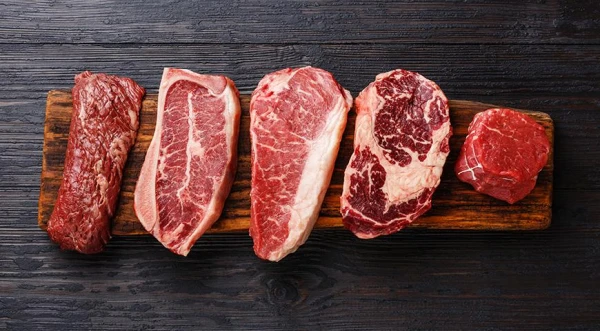
Mistakes in food storage in the refrigerator can lead to spoilage and food poisoning. Here are some tips on how to avoid common mistakes.
Raw meat, fish, and poultry contain dangerous microorganisms such as salmonella or listeria. Storing them alongside prepared dishes can lead to contamination. Therefore, it is important to separate raw and cooked foods.
Strong-smelling foods, such as smoked fish and certain types of cheese, should be stored in closed containers. This will help prevent the spread of odors to more delicate products, such as dairy, butter, and baked goods.
Clinical Nutritionist Alsu Zakiyeva emphasizes that the refrigerator is a mini-ecosystem with its own microclimate. Different foods can exchange bacteria and odors even at low temperatures through condensation droplets. Therefore, it is important to isolate strong-smelling foods, separate raw meat, fish, and prepared dishes, and not leave them uncovered.
Experts also recommend zoning the refrigerator:
-
On the door, where the temperature is less stable, it is best to store sauces, drinks, and jams.
-
The top shelf with the lowest temperature is ideal for meat, fish, and dairy products.
-
The vegetable drawers with adjustable humidity are intended for storing fruits and vegetables.
Regular maintenance of the refrigerator is important for keeping food fresh. Specialists advise:
-
Check the contents of the refrigerator weekly and wipe the interior surfaces with a damp cloth.
-
Conduct a deep clean of the refrigerator every three months.
-
Clean the freezer every six months to a year.
-
For cleaning, you can use a soapy solution, dishwashing liquid, baking soda, or vinegar. It is important to remember that vinegar is not recommended for rubber seals to avoid damaging them.
By following these recommendations, you can keep your food fresh and reduce the risk of food poisoning.













